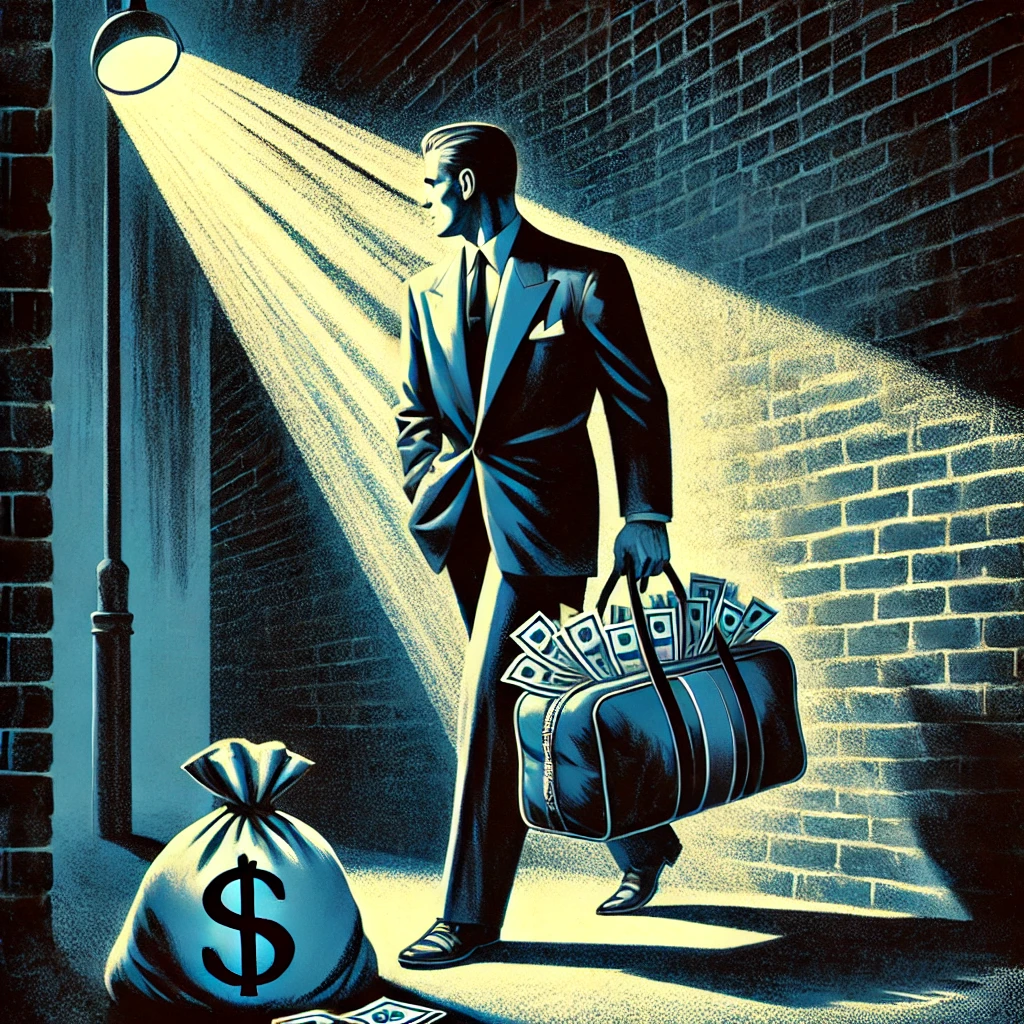
By Erya Hammett
The sun never shines in Silicon Valley—not really. It bounces off the glass windows of its earthquake-resistant low-rise offices like a con man's grin, all polish and no soul. Inside, the executive meeting rooms are slicker than a grifter's handshake, dressed up in buzzwords and self-congratulation.
Big Tech likes to tell a tidy, antiseptic story: "We’re neutral," they croon, "just pipelines for information, conduits for connection." But that fairy tale facade cracked apart the day Adalytics dropped its report like a whiskey glass shattering on a linoleum floor.
The report, titled "Are Ad Tech Vendors Facilitating or Monitoring Ads on a Website that Hosts Child Sexual Abuse Material," reads like a rap sheet for the digital advertising underworld. It pulls no punches, detailing how major ad tech firms might be more than just passive bystanders. The findings sketch out a world where the line between negligence and complicity gets blurred, raising questions about who really profits when ads end up alongside the internet's darkest content.
Turns out, the pipelines aren’t just carrying data; they’re sluicing money straight from the darkest alleys of the web. The culprit? Online advertising—the invisible grease that keeps the modern internet humming, quietly slipping ads next to content that'd make your skin crawl. Picture this: imgbb.com, an image-sharing dump where anonymity is king and decency is just a rumor. No gatekeepers, no questions asked. Upload anything. Leave nothing behind but the digital equivalent of cigarette ash.
Here’s the racket: imgbb plays host, ad tech vendors play dealer, and every click spins the wheel. Household brands end up rubbing shoulders with images that should never see the light of day, all while the cash register rings for companies that slap “ethical” and “responsible” on their mission statements like cheap cologne.
Big Tech's been running the same grift for years, peddling the idea that they’re just passive bystanders. But Adalytics peeled back the curtain, and guess what? Behind the smoke and mirrors, these platforms are media companies wearing masks, curating content, baiting eyeballs, and raking in the dough. The algorithms aren’t neutral. They’re hungry beasts, fed on engagement and profit, indifferent to the rot they help surface.
This ain’t a new song. The internet’s been a carnival of grift since day one. Fake news, extremist rants, now CSAM—it’s all the same melody with a darker beat. Content pulls in clicks, clicks pull in ads, and ads pull in money. The only thing that’s changed is the scale. The ad ecosystem is a labyrinth with more middlemen than a crooked real estate deal—ad exchanges, DSPs, SSPs—each one skimming their cut, each one layering on enough plausible deniability to float a battleship.
Now, traditional media? They are held to a higher standard. Slip up, and advertisers bail, watchdogs circle, and reputations get gutted. That’s why outfits like DoubleVerify and IAS exist—to keep brands from waking up next to the wrong kind of content.
Except that they don't, as the report reveals.
According to the report, "Ad brand safety verification such as DoubleVerify and IAS were seen measuring or monitoring ads on various explicit pages on imgbb.com on behalf of major brands such as FanDuel, Arizona State University and Thrive Market."
And those tech giants? They’ve got the Teflon treatment.
The report also notes, "Amazon, Google and other ad tech vendors claim to have media inventory quality policies. However, it is unclear the degree to which those policies are actually enforced if major brands and the US government's ads can be seen on a website that has been known to host CSAM for 3+ years."
So, there you have it Google, Amazon—they stroll through the fallout like it’s a Sunday picnic, untouched by the kind of scrutiny that would sink a regular media outlet faster than a two-bit hustler in a sting operation.
So, where’s the line? When does "oops" turn into "I knew but didn’t care"? The law calls it "willful blindness," and it sticks to you like gum on a hot sidewalk. If the suits at the top know—or should damn well know—that their platforms are cashing in on human misery, shouldn’t they answer for it? And here’s the kicker: under U.S. law, willful blindness isn’t just a moral failing—it’s a legal hook.
Prosecutors can, and do, slap charges on defendants who deliberately avoid knowing the dirty details of their own operations. Ignorance isn’t just bliss; it can be a crime, as Enron's CEO Jeffrey Skilling and Kenneth Lay Chairman discovered. Skilling got slapped with 24 years behind bars, a stretch long enough to make a man forget the taste of freedom—until the courts shaved it down like a bad haircut. As for Lay, he skipped the sentencing dance altogether, dropping dead before the judge could read him his last rites in legalese
This isn’t just about money. It’s about the guts of the digital world, the moral compass of companies that shape what we see, think, and believe. The cost of turning a blind eye isn’t paid in dollars. It’s paid by the voiceless, the powerless, the unprotected. And as Adalytics made clear, it’s long past time we stopped buying Big Tech’s excuses and started demanding the truth. Because in the shadows where the profits grow, the real price is always blood.
What to learn more? My sources are your sources (except for the confidential ones): Adalytics, NACDL, Freeman Law, Department of Justice
